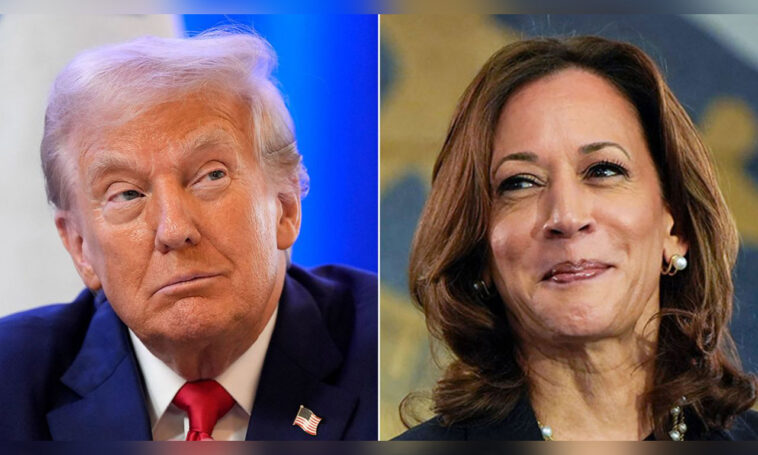Democratic presidential candidate Vice President Kamala Harris, alongside her running mate, Minnesota Governor Tim Walz, disembarked from their campaign bus in Savannah, Georgia, on August 28, 2024. They were in the midst of a two-day tour across the state, rallying support and connecting with voters in key battleground areas.
The political spotlight was firmly on Vice President Harris when her first joint interview with Governor Walz aired on CNN. The conversation took a controversial turn when CNN’s chief political correspondent, Dana Bash, asked Harris to address the criticism leveled by former President Donald Trump regarding her racial identity. Trump’s comments, which questioned Harris’s Blackness and accused her of downplaying her Indian heritage for political gain, had sparked intense debate in the media and among the public.
Harris, however, handled the question with poise. With a calm yet assertive demeanor, she dismissed the question with a wry smile, shaking her head slightly, and quickly rebuffing the attempt to draw her into what she considered a baseless and divisive narrative. “Same old tired playbook,” Harris replied,
“Next question, please,”
signaling her refusal to entertain a line of questioning that seemed designed to undermine her campaign.Bash attempted to press further, asking, “That’s it?” to which Harris simply responded, “That’s it,” effectively closing down the topic and redirecting the conversation toward more substantial issues.
The interview segment quickly went viral on social media, where many praised Harris for her grace and composure in the face of what they viewed as an inappropriate and racially charged query. Comments ranged from admiration for her “deflecting hate with grace and focus” to applauding her “very presidential” approach in refusing to engage in petty distractions. One user noted, “Well done. Don’t even dignify that with a response. Shows you’re controlling the narrative.”
Later in the interview, Bash sought to revisit the themes of race and gender, attempting to evoke Harris’s perspective on becoming the first woman and the first Black and Asian president of the United States. Harris, however, remained focused on her broader campaign message.
“I am running because I believe that I am the best person to do this job at this moment for all Americans, regardless of race and gender,”
she stated, emphasizing her commitment to policies that transcend identity politics.Referring to an iconic photograph taken during her acceptance speech at the Democratic National Convention, showing her young grandniece watching the speech with rapt attention, Harris spoke of her deep emotional connection to the moment. “I did see that photograph,” she acknowledged, describing the image of her grandniece with her two little braids, and her own figure in the background delivering the historic address. “It’s very humbling,” she added, reflecting on the significance of the moment for future generations.
Throughout the interview, Harris took the opportunity to articulate her vision for America, calling for a decisive “turn of the page” from the divisive rhetoric and policies of the Trump era. She criticized Trump’s economic record, outlined her stance on critical issues like immigration, and laid out a clear roadmap for her administration’s priorities on “Day One” if elected.
The CNN interview showcased Harris’s determination to maintain her focus on the issues that matter most to American voters, refusing to be sidetracked by provocative questions about race or identity. Her measured responses and refusal to engage in what she viewed as distracting debates solidified her image as a leader ready to confront the challenges of the presidency with clarity and resolve.
As Harris and Walz continued their tour across Georgia, it was clear that the Democratic ticket was committed to engaging with voters directly, emphasizing a forward-looking agenda aimed at uniting a divided nation and tackling the most pressing issues of our time.




Join the Community and Be a Part of the Conversation
You must be logged in or registered to post a comment.